#simone chekhov
Explore tagged Tumblr posts
Text

assorted companion design wips (and completely changing my molly design)
#sol: molly buttons#sol: simone chekhov#shadows over loathing#sketch#west of loathing#molly buttons#simone chekhov
13 notes
·
View notes
Text
Mylton hanging out with other SoL OCs! Benny The Hobo by Nohmadt

Gygan Clarks by @blogofloathing

Victoria Martinez by @blogofloathing

Vaughn (Vampire Bar bouncer guy) design by @blogofloathing


Kurtz Jr. by Sekku
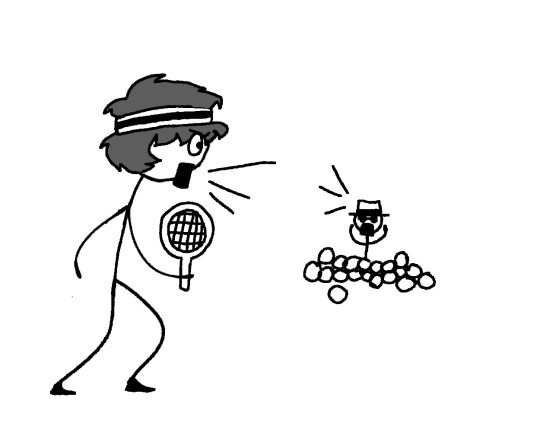
Viola A. Rosinberg by @mjbear130
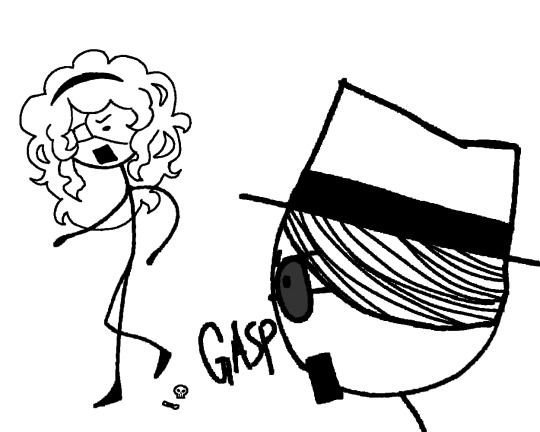
#shadows over loathing#fancy dan the cocktail man#fancy dan sol#simone chekhov#shadows over loathing oc#mylton meyrick [sol]
9 notes
·
View notes
Text

pathologic 3 announcement made me return to the classic game and finally play it properly! i think my favorite part of the bachelor's route is when he talks to maria kaina (or whoever's in her body at the time) and they explain that their planned Utopia isn’t even supposed to be a 'perfect' place but instead 'the mystical manifestation of a world inscrutable and inaccessible to men' going back to the original meaning of the word irl and instead of despairing Daniil fervently agrees that this kind of unimaginable leap is worth it, no matter where it actually leads
#pathologic#the bachelor#daniil dankovsky#andrey stamatin#peter stamatin#maria kaina#nina kaina#recent interview with dybowski made me kind of apprehensive#because i love the idea of an emotional state as a fundamental game mechanic for the bachelor but#he was very focused on the idea of following the 'teacher' in Simon and in the process learning everything he was meant to learn#despite never really 'catching' the dead guy in his time loops#i feel that the head of the studio is just projecting again#and in a way that old version of the bachelor made back when he was a student in his twenties#could end up seeming more compelling in the end#but we'll SEE#i am still wildly hopeful and hype#my artwork#ALSO anybody who likes the bachelor and reads those rambling tags#you should totally check out blank monk by chekhov#its short
1K notes
·
View notes
Text






There he is. There he is. There he is.
#theatreedit#vanyaedit#vanya#uncle vanya#andrew scott#simon stephens#sam yates#rosanna vize#anton chekhov#original#*gifs#finishing this up from the other day
288 notes
·
View notes
Text
We are lucky to be alive in the age of Andrew Scott, an actor of extraordinary breadth, skill and sensitivity, who can terrify as Jim Moriarty in Sherlock, make us fall in love (inappropriately) as the hot priest in Fleabag and cry in All of Us Strangers. He can also astonish, last year playing eight parts in a stage adaptation of Chekhov’s Uncle Vanya. He recently became the first actor to win the UK Critics’ Circle awards for best actor on stage and screen in the same year. And his latest project, Ripley, is a beautiful and chilling adaptation of the Patricia Highsmith novel The Talented Mr Ripley, with Scott playing the lead, dominating all eight one-hour episodes. It’s been a wild, crowning year for the 47-year-old Irish actor. But in March his mother, Nora, died of a sudden illness; she is who Scott has credited as being his foremost creative inspiration. His grief is fresh and intense and for the first half of the interview it seems to swim just beneath the surface of our conversation.
“We go through so many different types of emotional weather all the time,” he says. “And even on the saddest day of your life you might be hungry or have a laugh. Life just continues.” We are in a meeting room in his management company’s offices, talking about his ability, in his work, to modulate between emotions, to go from happy to sad, confused to scared, all within a matter of seconds. How does he do it? Scott laughs. “I would say that I have quite a scrutable face — is scrutable a word? — which is good or bad depending on what you are trying to achieve. But my job is to be as truthful as possible in the way that we are, and I don’t think that human beings are just one thing at any particular time. It is rare that we have one pure emotion.”
It’s an approach that is particularly appropriate for the playing of Tom Ripley, an acquisitive chameleon who inveigles his way into the lives of others (in this case Johnny Flynn, as the careless and wealthy Dickie Greenleaf, and his on-off girlfriend Marge, played by Dakota Fanning). “Ripley is witty, he is very talented. That’s gripping, to watch talent. I can’t call him evil — it is very easy to call people who do terrible things evil monsters, but they are not monsters, they are humans who do terrible things. Part of what she [Highsmith] is talking about is that if you dismiss a certain faction of society it has repercussions, and Ripley is someone who is completely unseen, he lives literally among the rats, and then there are these people who are gorgeous and not particularly talented and have the world at their feet but are not able to see the beauty that he can see.”
The show was written and directed by Steven Zaillian, the screenwriter of Schindler’s List. It’s set in Sixties New York and Italy, and filmed entirely in black-and-white, its chiaroscuro aesthetic evoking films of the Sixties — particularly those of Federico Fellini — while also offering an alternative to Anthony Minghella’s saturated late-Nineties iteration that starred Matt Damon and Jude Law. This has a darker flavour. “I found it challenging,” Scott says, “in the sense that he’s a solitary figure and ideologically we are very different. So you have to remove your judgment and try to find something that is vulnerable.”
It was a tough shoot, taking a year and filmed during lockdown. Scott was exhausted at the end of it and had intended to take a three-month break, but delays meant that he went straight from Ripley into All of Us Strangers. “Even though I was genuinely exhausted, it was energising because I was back in London, I was getting the Tube to work, there was sunshine,” he says. “I found it incredibly heartful, that film, there were so many different versions of love … I feel that all stories are love stories.”
All of Us Strangers, directed by Andrew Haigh, is about a screenwriter examining memories of his parents who died when he was 12. In it Scott’s character, Adam, returns to his family home, where his parents are still alive and as they were back in the Eighties. Adam is able to walk into the memory and to come out to his parents, finding the words that were unavailable to him as a boy. Some of it was filmed in Haigh’s childhood home, and there was a strong biographical element for him and his lead. Homosexuality was illegal in the Republic of Ireland until 1993, when Scott was 16. He did not come out to his parents until he was in his early twenties. I ask if he was working with his own childhood experiences in the film. “Of course, so in a sense it was painful, to a degree, but it was cathartic because you are doing it with people that you absolutely love and trust. I felt that it was going to be of use to people and I was right, it has been. The reaction to the movie has been genuinely extraordinary — it makes people feel and see things, and that isn’t an easy thing to achieve.”
The film is also a tender and erotic love story between Scott’s character and Harry, played by the Irish actor Paul Mescal. The two found a real-life kinship that made them a delight to watch on screen and off it, as a double act on the awards circuit. “I adore Paul, he’s so, so … continues to be …” Scott pauses. “Obviously it’s been a tough time recently and he just continues to be a wonderful friend. It’s everything. The more I work in the industry, I realise, you make some stuff that people love and you make some stuff that people don’t like, and all really that you are left with is the relationships that you make. I love him dearly.”
Scott and Mescal were also both notable on the red carpet for being extraordinarily well dressed. Scott loves fashion and has a big, well-organised wardrobe that he admits is in need of a cull. “I don’t like having too much stuff. I really believe that everything we have is borrowed — our stuff, our houses, we are borrowing it for a time. So I am trying to think of people who are the same size as me so I can give some of it away, and that’s a great thing to be able to do.” One of his favourite labels is Simone Rocha. “I love a bit of Simone Rocha. What a kind, glorious person she is. I just went to her show.” Fashion, he says, is in his DNA. “My mother was an art teacher, she was obsessed with all sorts of design. She loved jewellery and jewellery design. Anything that is visual, tactile, painting, drawing, is a big passion of mine, so I have tremendous respect for the creativity of designers.”
Today Scott is wearing Louis Vuitton trousers and a cropped Prada jacket, dressed up because he is collecting his Critics’ Circle award for best stage actor for Vanya. I ask how it feels to have won the double, a historic achievement. “Ah …” he says, looking at the table, going silent, having just been so voluble. “I’m sorry …” His voice cracks a little. “It’s bittersweet.”
At the ceremony Scott dedicated the award to his mother, saying of her “she was the source of practically every joyful thing in my life”. Is it difficult for him to carry on working in the circumstances, I wonder. “Well, you know, you have to — life goes on, you manage it day by day. It’s very recent, but I certainly can say that so much of it is surprising and unique, and there is so much that I will be able to speak about at some point.”
He is looking forward, he says, once promotion for Ripley is over, to taking some time off, going on holiday, going back to Ireland for a bit. He has homes in London and Dublin. To relax he walks his dog, a Boston terrier, dressed down in jeans and a hoodie “like a 12-year-old, skulking around the city” or goes to art galleries on the South Bank — he was considering a career as an artist until he was 17 and got a part in the Irish film Korea. He goes to the gym every day, “not, you know, to get …” he says, flexing his biceps. “More that it’s good for the head.” He is social, likes friends, likes a party. When I ask if he gave up drinking while doing Vanya, which required him to be on stage, alone, every night for almost two hours, he looks horrified. “Oh God, no! Easy tiger! Jesus … Although I didn’t drink much, I did have to look after myself. But we had a room downstairs in the theatre, a little buzzy bar, because otherwise I wouldn’t see anybody, so I was delighted to have people come down.”
Scott was formerly in a relationship with the screenwriter and playwright Stephen Beresford and is currently single, although this is not the sort of thing he likes to talk about. He is protective of his privacy, not wanting to reveal where he lives in London, or indeed the name of his dog — but he swerves such questions with a gentle good humour.
He is famous on set for being friendly and welcoming, for looking after other people. “The product is very important, but most of my time is spent in the process, so I want that to be as pleasant and kind as possible. I feel like it is possible to do that, that it is an honourable goal.” He is comfortable around people, with an easy charm — no one I have interviewed before has said my name so many times. And although when we talk he sometimes seems reflective or so very sad, there are also moments when he is exuberant, silly, putting on accents. “I feel like, as a person, I am quite near my emotions. I cry easily and I laugh easily, and there is nothing more pleasurable to me than laughing.”
Scott was raised a Catholic and is no longer practising, but says his view about religion is “ever changing — I definitely have a faith in things that cannot be proved”. When he was younger and felt overwhelmed, just before or after an audition, he would go to the Quaker Meeting House in central London and sit in silence, something that made its way into the second series of Fleabag, in which Scott’s priest takes Waller-Bridge’s character to that same meeting house. “It’s just around here,” he says, standing up, looking out of the window at Charing Cross Road. “When Phoebe and I first talked, we met at the Soho Theatre. We talked about love and religion, we walked all around here. And I said, ‘This is a place I go,’ so we called in and there was no one there, so we sat in there and we talked. It was a really magical day.”
Scott says he sees all the different characters that he has played as versions of himself. “It’s like, ‘What would this version of me look like?’ rather than, ‘Oh, I’m going to be somebody else.’ You filter it through you, and you discover more about yourself. I think that is a very lucky thing to be able to do, to find out more about yourself in the short time that we are here.”
#Andrew Scott#Ripley#Nora Scott#Critics Circle#Vanya#Chekhov#West End#All of Us Strangers#Paul Mescal#Hot Priest#Fleabag#Phoebe Waller-Bridge#Jim Moriarty#Sherlock#Patricia Highsmith#The Talented Mr Ripley#Dickie Greenleaf#Marge Sherwood#Dakota Fanning#Johnny Flynn#Steven Zaillian#Matt Damon#Jude Law#Anthony Minghella#Simone Rocha#Louis Vuitton#Andrew Haigh#Korea#Stephen Beresford
99 notes
·
View notes
Text
Vanya director Sam Yates goes into some greater depth about the development and rehearsal process for Vanya, it's a really interesting listen for anyone who loves hearing about what goes on behind the scenes.
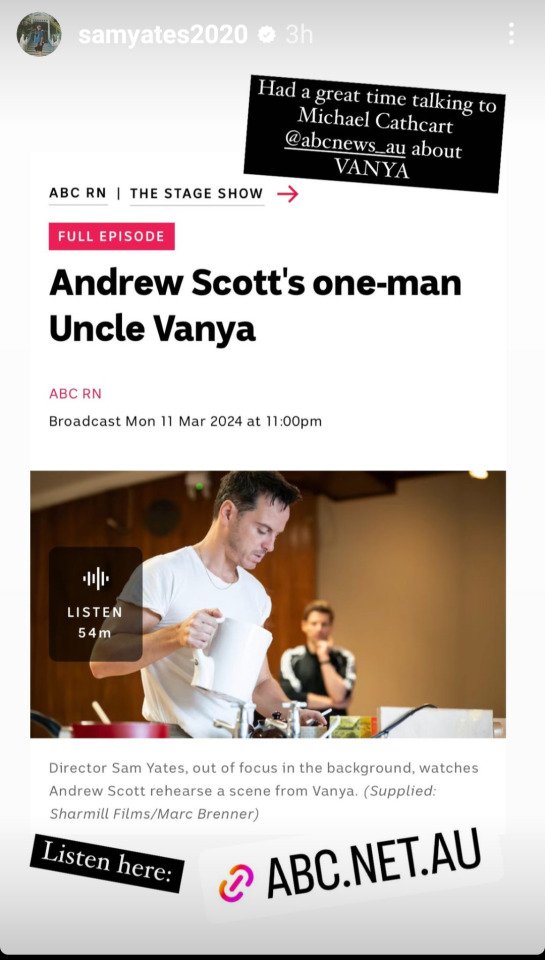
ABC.NET.AU
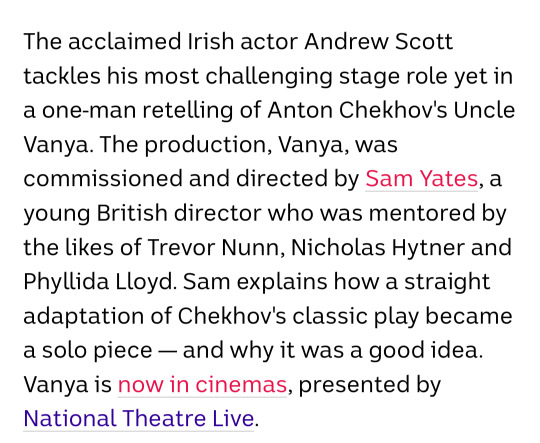


17 notes
·
View notes
Text
Just watched the Grey's season 19 finale...
Don’t read further if you don’t want spoilers
I'm losing my goddamn mind!! The chaos! The cinematography! The ships that no one wanted together (Jo and Link)!
First, Maxine actually surviving was the biggest plot twist of the century. They foreshadowed her death so hard it’s crazy that she’s still kicking. Every episode since she first appeared I’ve thought “Oh my god they’re gonna kill her”. AND THEY LET HER LIVE!!!!
Blue and Jules are gonna be delightfully messy next season. God, I love you Mike Chang Intern and Hippie Izzie Intern. To be fair to Blue and Schmitt, the last time someone followed a DNR at Grey Sloan, Gary Clark shot up the place.
Simone ignoring all the signs from the universe not to marry Trey until she was literally walking down the aisle. I literally turned to my mom and said “well, at least Blue doesn’t have to worry about missing the wedding”.
Simone and McNephew having a classic on-call room romp. Because my joy at someone actually using the on-call rooms for their intended purpose this season could only last so long. YOU ARE MAKING THOSE COMMUNAL BED SHEETS NASTY!!
Teddy falling victim to Chekhov’s Toothache is sending me. My mom said before hour 1 was done that a toothache can be a sign of a heart attack, and that it’s really suspicious that Grey’s sent all the Cardio folks except for Teddy to Boston. And because she’s an English teacher I believed her, and I still lost my mind anyway. She doesn’t have a pulse, McPatient/McPilot is dying, and McNephew and Simone pull some impulsive shit. The cut from this to Jo and Link finally resolving their will they won’t they tension was so funny to me. ALL THE STUFF, followed by drama that we already went through less than five seasons ago.
At least Yasuda and Helm got to be cute. I love them. They’re everything to me. Yasuda kicks ass, Helm’s about to be the only Chief Resident thanks to Schmitt’s previously stated breaking of a DNR, and I’m not looking forward to the next season where we’ll probably get a plot line about how they can’t be together since Helm’s Yasuda’s boss. My mom said that since the relationship began prior to Helm’s renewed employment, maybe they’ll be an exception, but we’re not getting our hopes up. We’ve been burned too many times before.
Also Helm looked so good this season?! Like, I’m so glad they decided to develop her beyond “haha, frumpy lesbian in love with a straight chick”. She’s got confidence, style, and a hot girlfriend who drives the getaway van at weddings that never should have happened. Who’s doing it like Helm right now?
On a less happy note, *in Adele Webber* RICHAAARRRD! Next season better start with Richard not having drank that vodka tonic. Please Webber, don’t do this bud. Amelia cannot be your Charlotte King. Please.
#greys anatomy#greys anatomy spoilers#greys spoilers#greys season 19 spoilers#taryn helm#mika yasuda#lucas adams#teddy altman#benson kwan#jules millin#simone griffith#mcnephew#richard webber#Chekhov's toothache
91 notes
·
View notes
Text
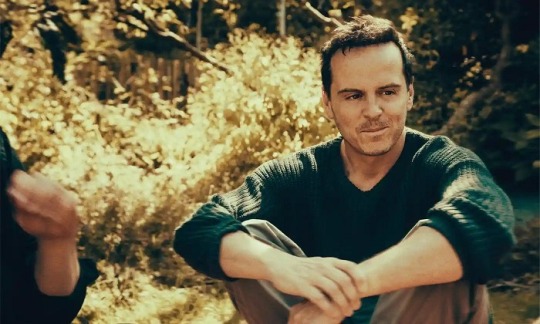
Alright, almost a week later, here is my review of Vanya and the night I saw it. Autocorrect didn't let me type this on my phone in my grimy bunk bed and that cold got me good, but here are my thoughts! @itsathingialwayssay , @shegottosayit , @illfayted17 this might interest you. Be aware, there are spoilers for the play as well as the production behind the read more.
I saw the play on Monday September 25th, so my opinions are based on that evening, can’t say anything about other nights!
I’ll start with some negatives:
The theatre. Not so much the interior or the personnel, who are absolutely lovely, but why oh why did I have to hear the trains throughout the whole performance?! At first, I thought it was on purpose, with it being the Russian country side, so you might hear some trains here and there, but no, it’s Charing Cross that you hear. Also it’s freaking expensive, but we knew that.
Secondly, I was annoyed by the audience. It was a surprisingly large number of classic elderly theatre goers, who all seemed to enjoy themselves a lot (except for one guy who snored), some teenagers dragged there by their parents (or the promise of seeing Moriarty) and some assholes, like the ladies next to me. One came in after the first act, prosecco in hand, they whispered to each other during weird moments and generally seemed bored and/or disappointed. Which is their prerogative, you don’t have to like everything I do, but with these two it seemed… performative.
Also, about the standing ovations: I get Andrew’s critique, it’s dumb if you feel like you MUST do it, but the fact is, that in a theatre that small, you don’t get to see the person bowing, if you don’t stand up. So yeah, people stood up, I did too (because unlike in Austria where you clap for like 5 minutes if you DIDN’T like it and for like 30 if you did, in the UK they only come out to take a bow once or twice and I wanted to see him), but these two ladies just left with sourpuss faces.
Thirdly the cigarettes. I knew he was going to smoke on stage, what I wasn’t prepared for was them smelling this bad. They’re not normal cigarettes, they’re of the self-rolled, cheap student tobacco kind, that you only really use for blunts. They reeked. If you’re in the first few rows, I’m sorry.
Fourthly, I don’t know if the play really lent itself to a one man show. Don’t get me wrong, I loved what Simon did with it, the way he mostly cut out the love rivalry between Vanya and the doctor, and shifted the focus more on Helena was a great decision. It made the play more cohesive and boiled it down to its message quicker. Loved the modern language and the Britishisms (could have dealt without the name changes, no one is called Vanya in a play named Vanya) and it was truly laugh out loud funny at times, which is great, because I’m depressed enough without listening to depressed Russian people for a full show.
But still, while it all worked in the end, I think there are plays better suited for this treatment. I have spoken to shegottosayit about this, but I also think they kinda expected a familiarity with the play, because it helps you following the plot. I talked to two girls in the queue outside though and they weren’t familiar with the play and understood it well, so what do I know.
Which brings me to the great stuff. The whole thing starts with Andrew just wandering on stage, smiling into the audience, switching off our lights and turning them on on stage. As if to communicate, ok, we’re in the theatre, you’re here to watch a play, I am an actor doing that play, like we’re all in on a joke. He starts with the different characters and they all have an identifier. For example, Vanya has his sunglasses, Helena her chain, Sonya her dishrag and it’s all nice, haha, see the actor is using props, so you know who is who, it’s simple and harmless. That’s how he gets you. Because he doesn’t need them and over the course of the play he starts playing and fucking with them and it’s SO GOOD!
He doesn’t change his voice much between characters, except the two “funny” ones (and maybe Alexander), there he goes a bit into more comical registers, but for the main characters he pretty much uses the same voice. And you still can tell them apart! Because he changes posture, his body language, yes, his tone, but not his voice and the levels of masculinity and femininity (in a traditional sense), yet he never veers into camp or offensive (that aspect really fed into my unpopular opinion on the whole “straight actors in gay roles” discourse, which I will never talk about). It’s incredible to watch how fast and seamlessly he does that and how effortless too. That’s the craziest thing about watching him act, he makes it seem easy, as if it’s nothing to him.
And the faces. The theatre has opera binoculars you can rent for one pound, I forgot my glasses (mild myopia, objects further away get blurry after a long day, especially if they’re an actor I’m watching from the second to last row), so I was super glad to have them and look at his face close up. What did I see? He changes faces. I’ve seen him do it before, but in this it’s instantly and so quickly! I’m not gonna lie, it’s a bit creepy how he can change his facial shape somehow and go from sweet Sonya to hardened Ivan Vanya. It’s not just countenance or expressions, it’s something else and wow is it impressive! But a bit scary too once you think about it. ^^’
Also “zooming in” on him really cleared up something I’ve been wondering about ever since I’ve seen King Lear: One of Andrew’s biggest shortcomings on film can be that he sometimes comes across as too much, as a bit over the top. It is a theatre actor thing and he’s not the only one doing it (especially not in King Lear) and yes, that completely disappears live on stage. He acts for the whole house, but it always feels natural.
The one thing that felt a little bit forced was the singing in the end, he's right, he’s not a good singer (sorry!) and it took me out a little bit. The ending of Vanya is beautiful and heartfelt, I get what they wanted to achieve with him singing “If you go away”, it was a pause, a mood setter, but I think there are better ways to do this than through a musical interlude. That said, I saw A Little Life the other night, which is by the same production company, they made poor James Norton sing too and compared to him Andrew sings like an angel. So maybe I’m just a massive snob (hint: I am).
The other things that took me out a little were the sex scenes. Yeah, sex scenes in a one man play where the original play has none (at least not explicitly so). Damn, it’s been almost a week and my mind is still reeling from them. Did I like them? I have no fucking clue! I seriously need to talk to someone who didn’t have Andrew star in all her lonely sexy fantasies for the past 4 years, because I need to know how they affected someone with a normal, working brain who is not me.
I was torn between “wtf is going on” “JESUS HE TOOK HIS SHIRT OFF” “…you’re watching a dude make out with himself…” “…the sounds…” “don’t look at his naked back while he’s humping the stage, that’s rude, OH GOD YES LOOK AT HIS NAKED BACK, LOOK AT IT MOVE”. The second scene was even worse, because he’s standing up against a door, entangles his fucking impressive arms and moans as the lady while you see him move as the guy. Which was, yes, hotconfusingweird too, but I could have dealt with it, if he hadn’t mimed the penetration literally two seconds before and my brain just short-circuited and disappeared downstairs. The third confusingly hot thing happens in the end, when the doctor says his goodbyes. It’s actually a very good and touching scene, it has been set up that he’s falling into alcoholism and now that all his endeavours are nil, he downs more than half a bottle of vodka. We’ve all seen Andrew chug that beer in The Town and he does it here as well, but it takes a while and it’s so quiet in the theatre that you can hear him swallow and cry all the way through. Yeah. Yeah, I know.
Seriously though, there are more than one moment when the whole theatre is just stock-still. I mean, people laughed and reacted, again, one guy snored, I sighed a lot at Sonya (#ohlookitme), but in the important moments the theatre was dead quiet. Except for Charing Cross, of course.
When I left the theatre, my brain was buzzing and I walked out right into the backstage area. I read “backstage to the right” and was ready to walk to the right, even though no one was there. Except that stupid me HAD to ask the security, who I recognised from pics and the Cyrano backstage, if that was the way to the signings. And no, it wasn’t, that’s literally in front of the theatre (and honestly, probably why there are no selfies allowed this time, if they were, people would block that busy street for hours), I was walking towards the actual stage door. If I had had just one ounce of more self-confidence, I just could have kept on walking into the dressing rooms, God damnit!! (I’m kidding, I would never do that, and it would most likely get me banned for life, but still, it was a funny situation and that security was actually really nice and cool).
As for the signing, it’s a straight-forward affair, you line up, you move forwards, he signs your stuff, you move on (except if you’re an old lady, but more of that later). I soaked him in in all my manic brain overloaded happiness while waiting for my turn though, and the first thing I noticed was that he isn’t as short as people pretend he is. Yes, he wore some trainers with a thicker sole, but with them he wasn’t that much shorter than I am. Perfect height, for eye-contact, just saying.
Second thing was that he’s in the shape of his life, dear Lord! I always read him as wiry, which can look buff on screen, but no, he’s genuinely, proper buff. Those are some serious arms and just generally he’s wider than I would have expected. Other than that, he looks pretty much exactly like he does on screen. Some actors don’t, they’re either plainer or prettier (Anne-Marie Duff, she really was fucked over by some cruel form of unphotogenicness) in fact, the second night I went there I saw Sam Yates (he shook my hand :D) and he does not look like he does in pics for example. Andrew does. He has a fascinating and alive face and looks just like he did in that Vanity Fair video, except without the orange goo.
The first night I saw Simon Stephens coming out the stage door too and I literally hopped over to him, beaming like a loon. He and the people he was with were SO nice and so helpful, he signed my version of Vanya (the German edition) and I could actually voice my thoughts (which I couldn’t with Andrew) and tell him how much his interviews have helped me through the lockdowns and how I admire his writing, bla bla bla.
Anyway, I made him laugh, he shook my hand and said “it was a pleasure meeting you [widge’s real name]” in which moment my jaw literally did that looney tunes thing and dropped to my chest. Night was MADE, you don’t understand how much!
[Here I cut out a large chunk of extra thoughts to allow myself to post this in the tags]
Anyway, back to the old lady, she was the one who made Andrew laugh during the signing (LOVE that laugh), I passed her on the way back to the train and had to talk to her. She was a proper lady, dressed elegantly and she was the first damn person outside the theatre who understood my need to DISCUSS the play! Everyone else in the line was talking about other things, I had to PROCESS what had happened. She and her assistant were so cool, and she said she’d absolutely loved it and had a ton of other well thought through opinions on it. Big fan of her, no idea what her name is, but we all should get some cool older ladies to talk about theatre with, when our brains are buzzing with so many new impressions!
I aimlessly wandered on over the Thames after that, sat down in some red paint on the way, which made my jeans look interesting for the rest of the trip and had to just move for a while to cool down. I did go to the queue the next day too, just to be a little less tongue tied around Andrew (it did not work, whatsoever xD), but that was the day Joe Alwyn and a fox made an appearance, so it was totally worth it. As was the whole international camaraderie in the queue. Honestly, I’ve missed that, just people being excited about something together, I got hugged by a tiny Indian (?) girl and a Russian lady, all because we’re a bunch of excited nerds outside of theatre. It felt fucking great.
22 notes
·
View notes
Text
#frontmezzjunkies reviews: #VaNYa #OffBroadway adapted by #SimonStephens from #Checkov's #UncleVanya starring #AndrewScott at #LucilleLortelTheatre

View On WordPress
1 note
·
View note
Text
Chekhov to the max
‘NO, Helena, you cannot play my mother’s piano!’ Andrew Scott as one of the nine characters he performs in Vanya, screening via NT Live and Ster Kinekor in South Africa this week. Photograph courtesy hampshireattractions.co.uk WHAT IS IT about Chekhov that makes us relate so beautifully to his characters that we can be unbridled in our laughter, cringes and agony of recognition at their…
#Andrew Scott#anton chekhov#BBC Radio#Brooklyn#Cape Town#Cinema Nouveau#Durban#Gateway#Janet de Keyser#Johannesburg#London#National Theatre Live#Pretoria#Rosanna Vize#Rosebank#Sam Yates#Simon Stephens#Uncle Vanya#Vanya#West End
0 notes
Text
Watch this, it's so good!
This is such a banger of a song tbh.
this one feels a lil silly, had lot of trouble with colours and was sleep deprived for half of it. Might remake it someday.
#young royals#wilmon edit#queue#wilmon#yr art#wilmon art#young royals season 2#chekhov's shooting range#yr edit#Young Royals art#prince wilhelm#Young Royals edit#august horn of årnäs#august horn#simon eriksson#Prince erik#anger young royals#angry wilmon#wilmon angst#wilmon anger#wilmon grief
65 notes
·
View notes
Text
RIP to Broadway Legend Merle Louise
April 15, 1934 — January 11, 2025







Merle Louise Simon, 90, of New York, passed away on January 11, 2025. Born on April 15, 1934, in New York City, she was the beloved daughter of the late Alvin and Merle (Barnes) Letowt.
Merle will be lovingly remembered as a dynamic force of nature-energetic, funny, adventurous, and full of life. An avid traveler and scuba diver, she explored the world with curiosity and vigor, journeying to Africa, Nepal, and beyond. Among her greatest adventures was her climb to the base camp of Mount Everest. A gifted entertainer with a beautiful voice and an undeniable stage presence, Merle's life was a testament to her passion for the performing arts.
Merle was also deeply proud of her education, graduating from Marymount College later in life with a degree in Psychology. Her studies reflected her intellectual curiosity and her deep understanding of the human spirit, qualities that enriched her relationships.
She began her journey in theater at the Drawing Room Theater and Pennsylvania Playhouse, both in Bethlehem, PA and traveled to New York City for auditions. Merle, who performed under her birth name Merle Letowt early in her career, made an indelible mark on Broadway. She debuted as "Thelma" in the original cast of Gypsy (1959), later stepping into the lead role of "Dainty June" for much of the Broadway run and the first national tour. She went on to star in several Stephen Sondheim musicals, earning acclaim for her nuanced performances. Her portrayal of "The Beggar Woman" in Sweeney Todd: The Demon Barber of Fleet Street (1979) earned her the Drama Desk Award for Outstanding Featured Actress in a Musical. She was also celebrated for her roles in Company (1970) as "Susan" and Into the Woods (1987), where she memorably played "Cinderella's Mother," "Granny," and the "Giantess."
Merle also originated roles in La Cage aux Folles (1983) as "Mme. Dindon" and Kiss of the Spider Woman (1993) as "Molina's Mother," a role she performed in London's West End, Toronto, and on the national tour. Off-Broadway, she created the role of "Cecily MacIntosh" in Charlotte Sweet (1982) and was widely lauded for her performances in classics by Shakespeare, Chekhov, Molière, and Shaw.
Her theatrical legacy extended beyond the stage, inspiring the creation of the game Six Degrees of Merle Louise, a Broadway-themed twist on the popular Six Degrees of Kevin Bacon.
Merle's on-camera appearances were equally memorable. She was featured in the televised production of Into the Woods and a documentary about the recording of the original cast album of Company. She made guest appearances on TV shows, including Law & Order, and continued performing into her later years. Highlights included roles in Cabaret, A Little Night Music, and The Full Monty. In 2007, she appeared in Luke Yankee's award-winning play The Jesus Hickey. She also appeared in Billy Elliot.
Merle will be dearly missed by her daughter, Laura Simon; daughter, Heather Simon; and son, Matt Simon. She is also survived by her sister, Jane Halteman, and her husband David Halteman; and a brother, Alvin "Butch" Letowt, Jr. She was preceded in death by her sister, Christine A. King' brother-in-law, Walter I. King and nephew Adam D. Halteman.
Merle's legacy extends beyond her illustrious career. She will be remembered for her warmth, humor, and zest for life. She enriched the lives of those that she encountered, leaving a profound impact on the theater community and all who knew her.
71 notes
·
View notes
Text
UNCANNY X-MEN #5 From The Ashes
First of all, I should acknowledge that something I've been calling a missed opportunity has received an attempt on page - the X-Men killing in FotHox, specifically Kurt. It's a single line and doesn't make a lot of sense, trying to have cake and eat it too by nodding to it in issue 5 but not meaningfully engaging with the recent past. Kurt did NOT think he was a killer, ever. That's just a bad faith reading of the text. He was in a war against genocidal fascists, come on.
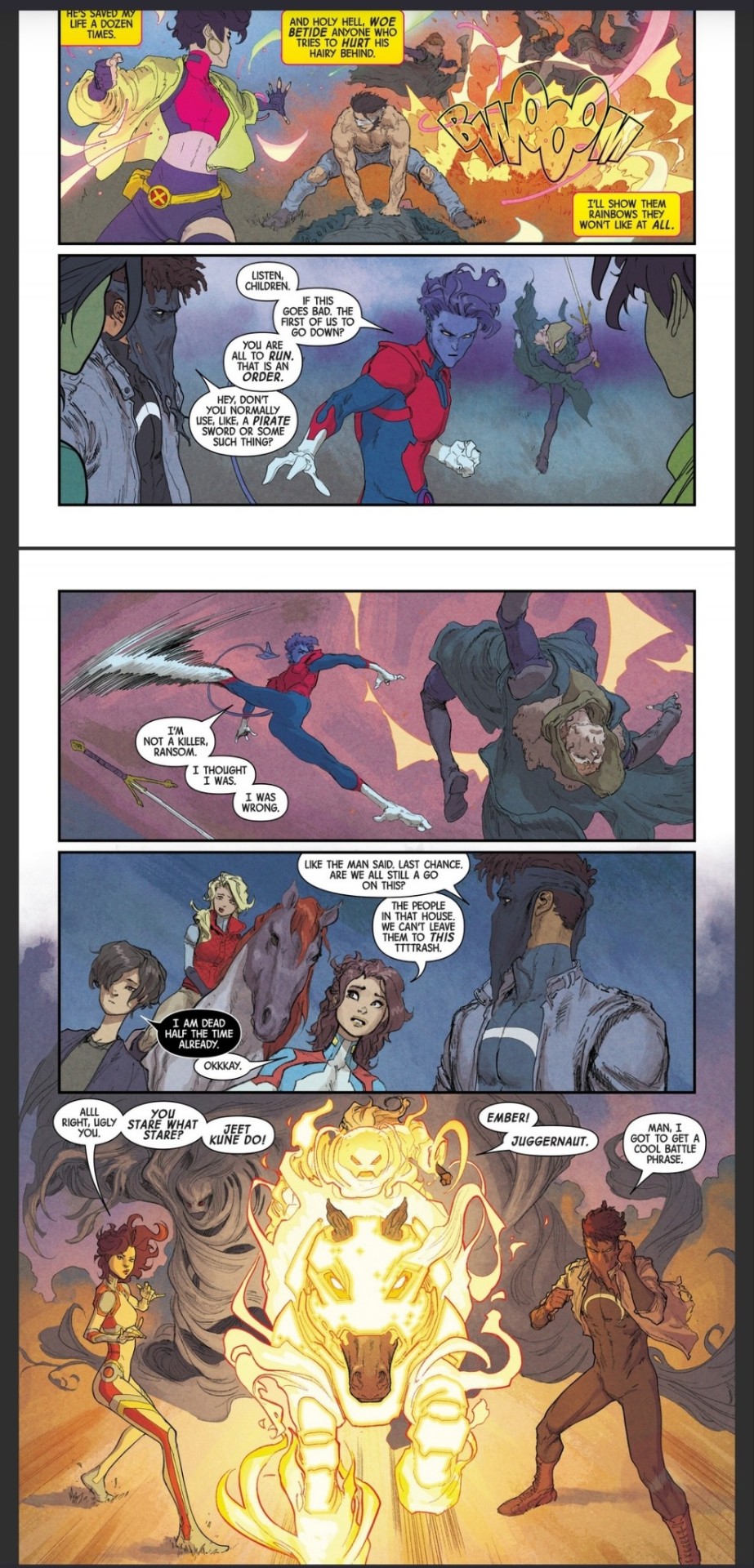
Cool new form for Calico, though.
Kurt putting his sword/s away doesn't quite cut it. Errol Flynn swashbuckling has been an influence on him since he was a child and he's been big on sword usage almost since the beginning of his publication history. It's his thing, and he badly needs personality in FTA. Also, he didn't kill anyone with a sword in Fall, he teleported them into space. Swords parry and block, they disarm and intimidate. They have use outside of combat. They look cool, and it's something Kurt is very good at. So yeah, the barest attempt was made, but it didn't land for me. There could have been space to set it up and sell it too, perhaps by toning down the Charles Xavier/Sarah flashbacks that were ultimately just a fakeout.
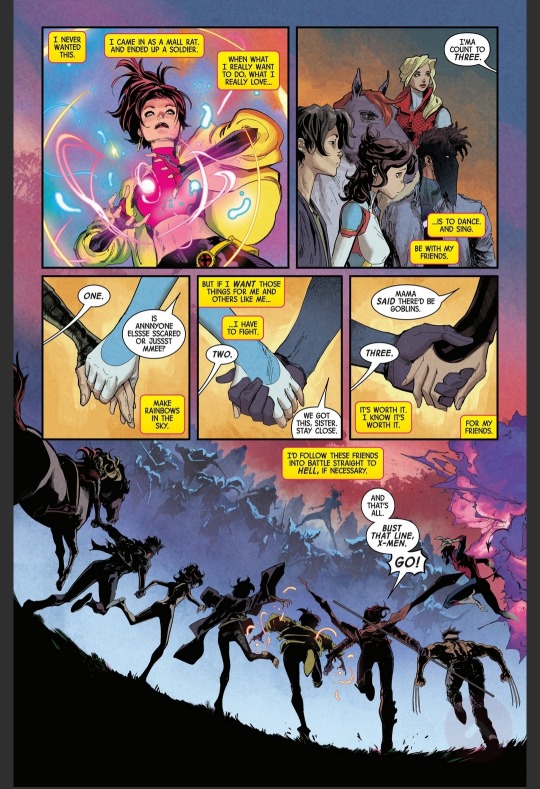
Speaking of things that were given lip service in issue 5 and could have benefited from more attention, Jubilee told us who she is - kinda. A panel or two of origin story that was established in the 90s, but nothing about why she's here or what she wants out of life. How she feels about the loss of Krakoa, where the hell her baby, Shogo, is. It fits in with Uncanny's overarching sense of unfocusedness and her role could have been performed by anyone - not a good look for the end of the flagship book's first arc.
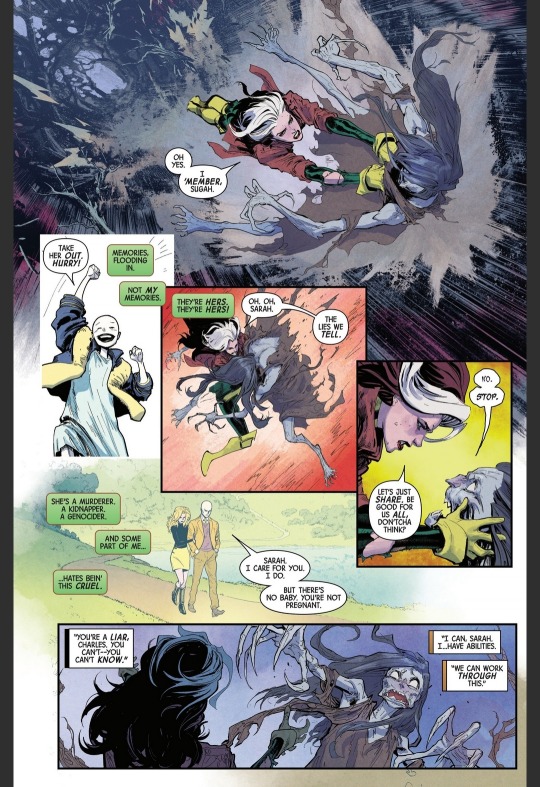
We get the resolution to and defeat of Sarah Gaunt. 'She's crazy, always has been' is so unsatisfying. I can't think of any other description. It's nice that we don't have another sin to lay at Xavier's door, but attempted baby trap is not a frequently used trope for a reason. She acknowledges she was lying, but then blames him for the loss of her son years later in a different country - then transfers that hatred to all mutants? Comicsxf have criticised her characterisation as 'Monstrous Mother' and I agree. What was the point of giving it so much space, to the extent that we spent more time in the past than with most of our putative main characters? She beat the shit out of Logan and Rogue the last two issues, nearly killing them - only for Rogue to draw strength from deus ex dead kid and completely wipe her out. It's lovely that Rogue is able to summon empathy for her, it shows us why she's a hero, but taken as an arc she's rewarded with victory despite making bad decisions. Long time readers know Rogue can lead, but I think Gail Simone is going to have to do the work to convince new readers that she's right for this. It's well and good to have moral authority but leading your team to death isn't.
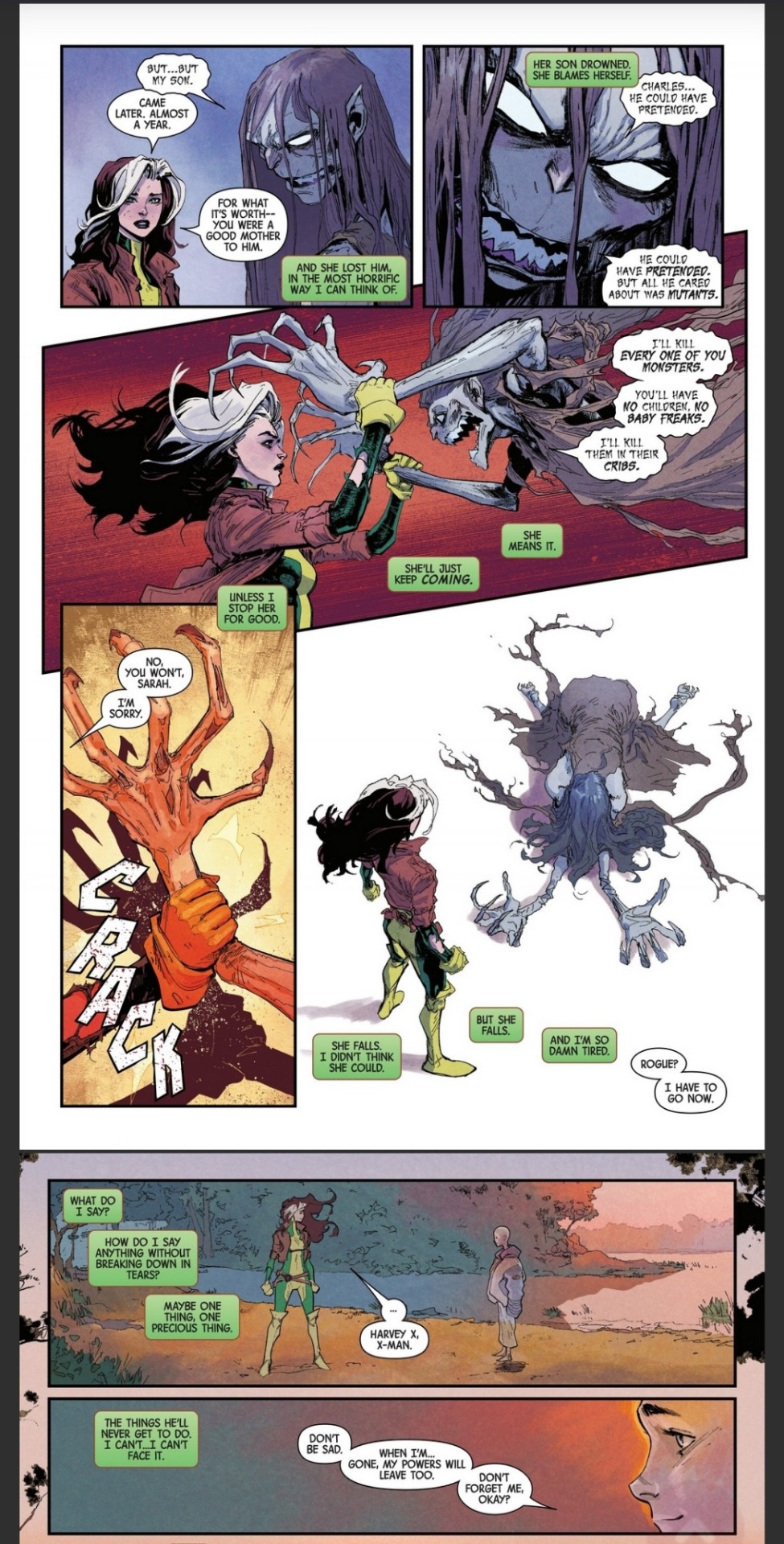
Harvey X was unexpected but felt unearned. Surprise is fun but internal and narrative consistency is better. I thought it was Charles moving people around, because it was signposted. Harvey X being the puppet master felt almost silly as he revealed previously unseen very powerful abilities. Why would he wait for Rogue and Logan to be nearly dead to act? Maybe that's the only time he can act, because he's dead? Idk, at least he didn't scream how hot Rogue is again. He speaks about a sacrifice he's making but what sacrifice is that? Is his power finite and burns him out, Proteus-style? It's not quite clear, and I guess we'll never see him again.
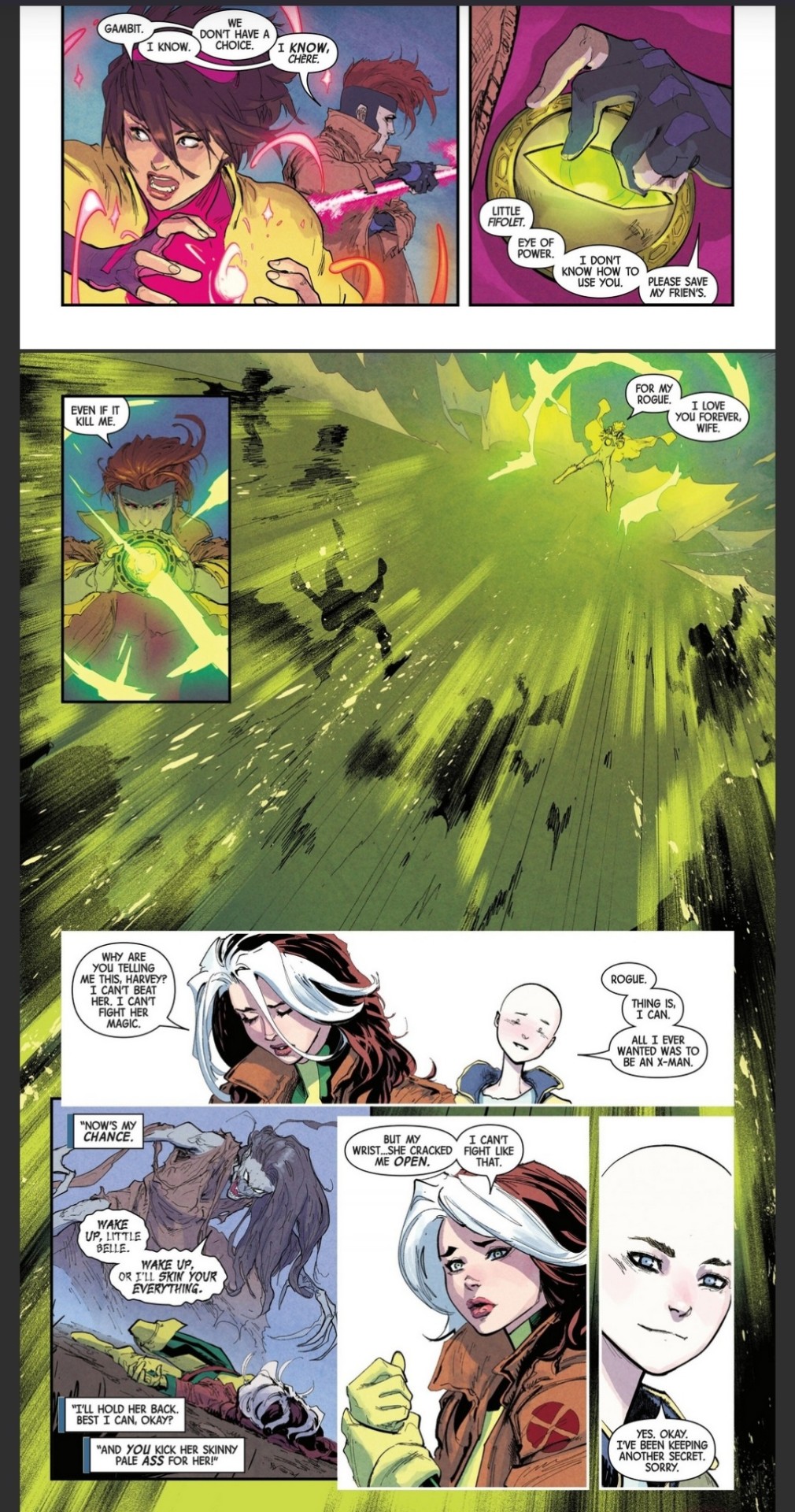
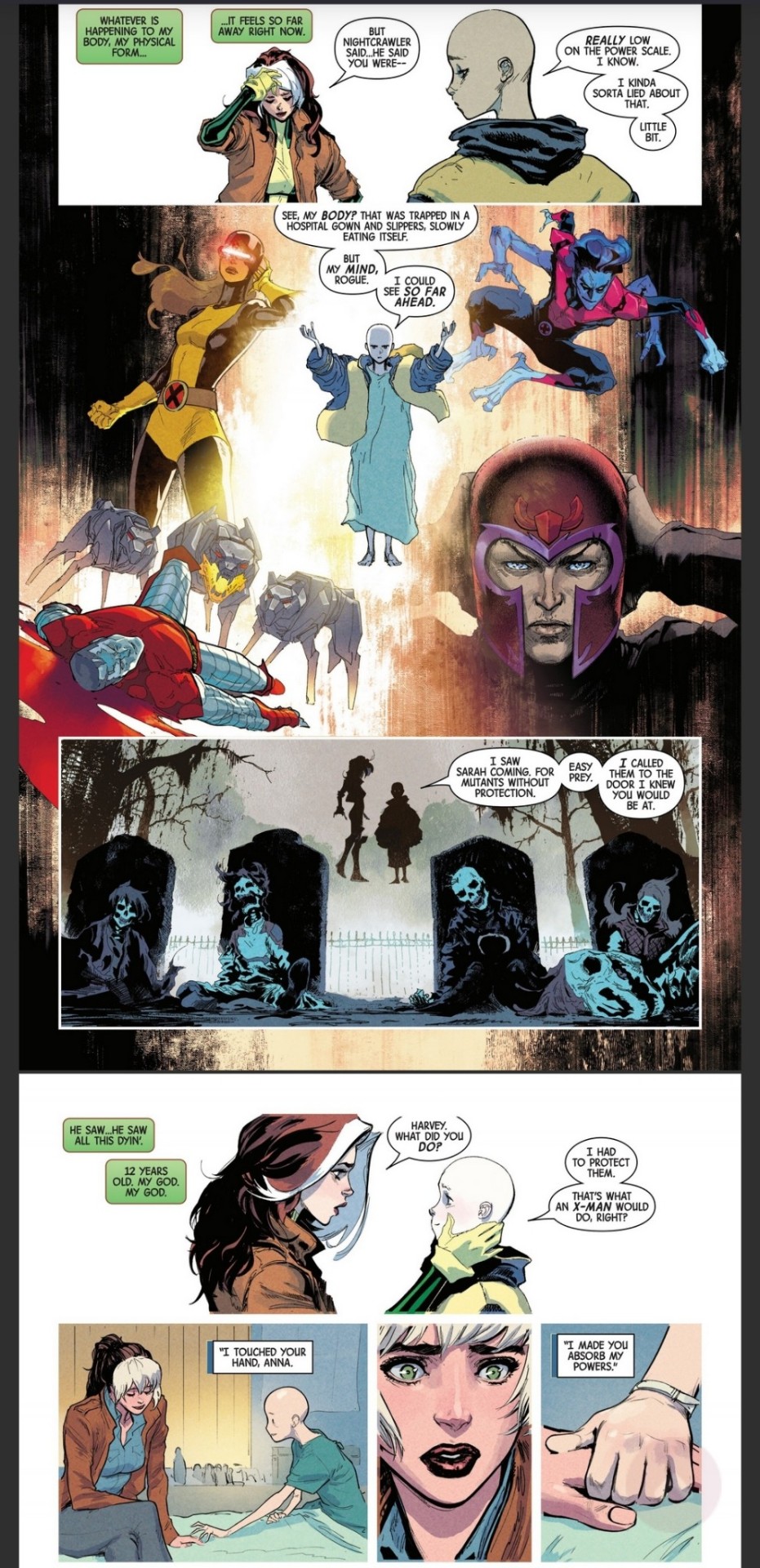
Precognition. Healing. Telepathy.
Gambit and the Eye of Agamotto was a Chekhov's Gun that mostly worked (and made me feel sah smart for calling it.) Remy prays (?) to it and then blows the possessed cultists away. I'm pretty sure Jubilee could make a bigger boom than that (I know she can) but rule of cool wins the day.
These are/were captured and possessed mutants. I hope we see them again, especially after Fawn's introduction in #1. They're not doing this willingly.
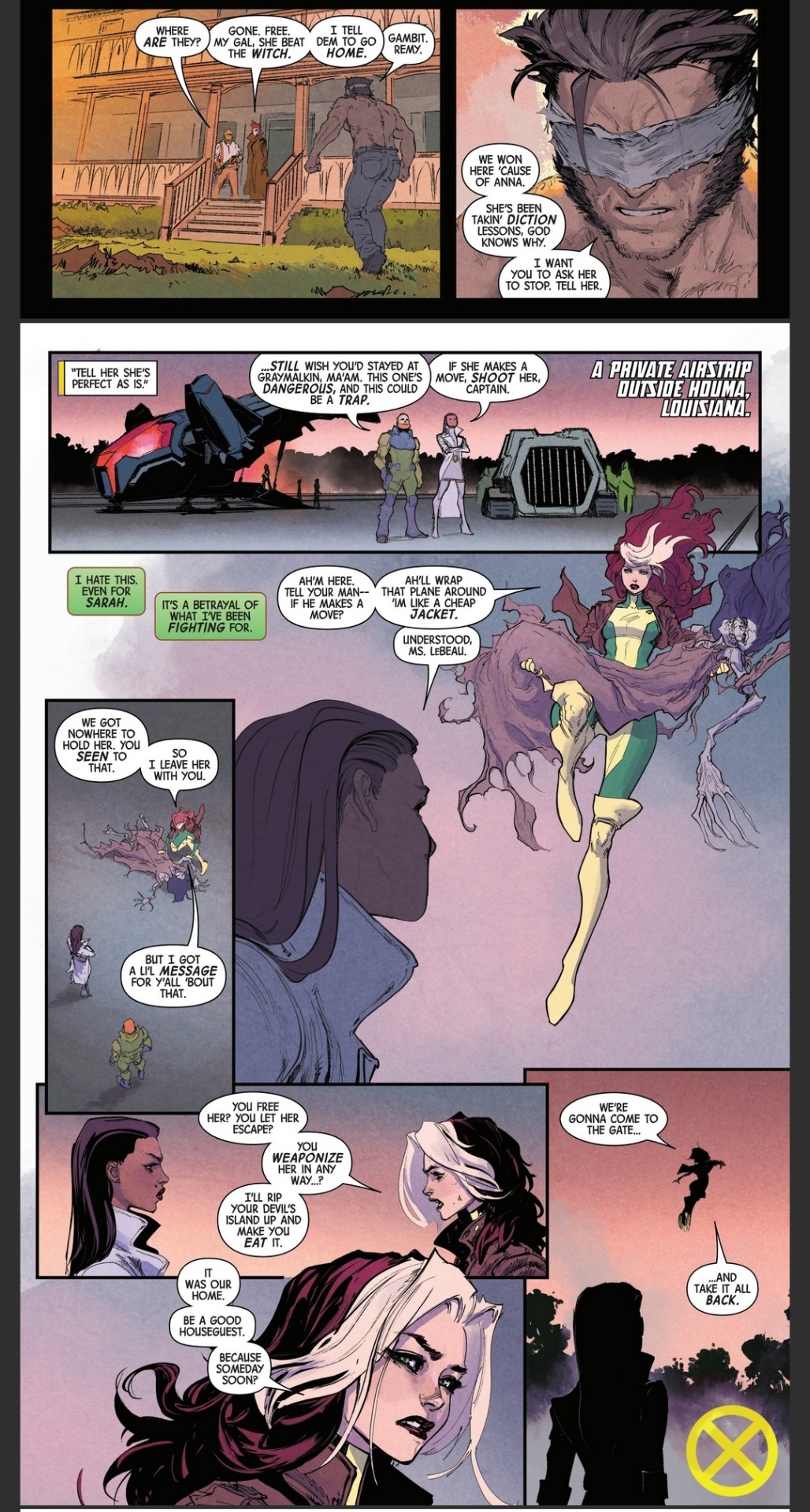
Rogue flies to meet Warden Ellis to give her Sarah back, further muddling Ellis' characterisation. I have no idea what she's about now. Nuance is good in antagonists, but for someone who wants to crush mutants with her government mandate she's awfully cooperative with them. No threats, no riddles, no ultimatum, just meekly accepting two threats? I want to give a fuck about the closest thing we have to an antagonist (for a crossover event right around the corner) but there's nothing there! This was an opportunity for something, anything. Gah! I don't understand this writing.
Rogue's threat is interesting, though I have to wonder what she and Scott are going to disagree about. It's implied Jubilee will get captured, and we know Beast already has been. 2/3 X-Men teams have their motivation to wreck Graymalkin I just struggle to see them coming to blows over it.
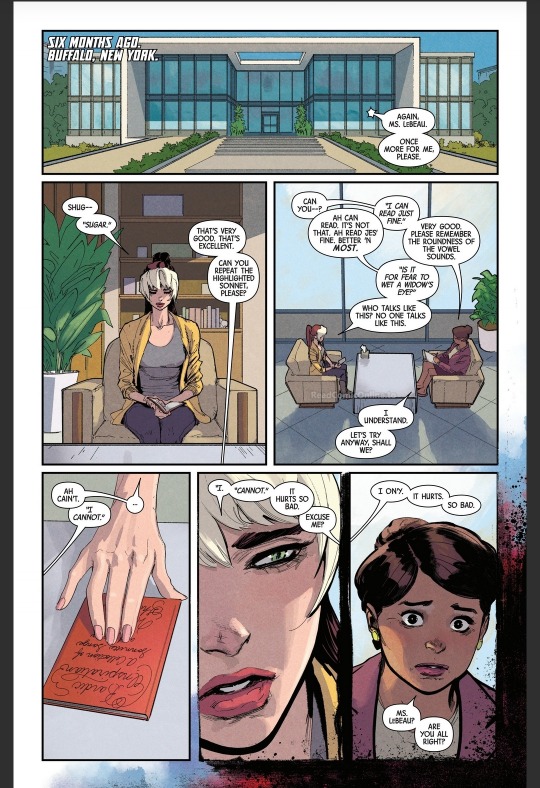
Rogue and her elocution lessons feel very out of character and came out of nowhere. If it was setup earlier and tied to insecurity or identity that would work, but being introduced and haphazardly paid off in issue 5 baffles me, frankly. Rogue's southern upbringing is never something she's been ashamed of, her angst has almost always been related to her powers. She's a confident woman. A story where she struggles with that could have legs, but that's not the story that's been told. She certainly doesn't need Gambit or Logan to tell her - I'd expect it to be the other way around.
I'm not sure what to make of the images we get from Harvey X's visions of the future. I'll write about them separately if I find an interesting hook.
So ends the first arc of Uncanny X-Men volume whatever. My main issue is that it doesn't meaningfully engage with what came before it, and it doesn't quite manage to establish its own identity either. What is its mission statement and what kind of book can we expect? I don't know, and I hope Gail Simone does. It's not the end of the world, mind you. Following Krakoa was always going to be tough, and the world was going to feel smaller, less connected. I can't help but wonder what it might have felt like without a lot of Charles Xavier flashbacks amounting to nothing. Maybe we'd know more about Kurt or Jubilee, even the Outliers. Ideally that'll be corrected. I don't do number ratings so I'll just say it was okay, higher if you are a Rogue stan.
#x comics#uncanny x men#from the ashes#x men#rogue#gambit#professor x#marvel#comics#wolverine#nightcrawler#calico#jitter#ransom#deathdream#Harvey X#fawn#jubilee#sarah gaunt#warden ellis
70 notes
·
View notes
Text
'...The Picture of Dorian Gray is one of two starry new stateside arrivals from London in which a single actor plays every part in a classic story adapted for a modern moment; the other, Vanya, starring Andrew Scott, is quiet and introspective where Dorian Gray is frenetic and exaggerated. And at a time when the omnipresence of social media has brought a kind of self-conscious posturing to the cultural forefront, the two offer markedly different ideas about what it means to imagine oneself as a character, or several, to be watched.
The Wilde adaptation, written and directed by Kip Williams, twists that critique into one tailored for a very different kind of image-centric era from Wilde’s own, using the device of a single actor to develop a pointed reflection on the ways in which performing a persona for others can rot away every trace of an interior life. Vanya, adapted by Simon Stephens from Anton Chekhov’s turn-of-the-century original, makes for something of a counterpoint, suggesting that there’s extraordinary richness to be found in seeing yourself as the embodiment of multiple intertwining voices, and letting those voices freely engage with one another.
In the difference between them lies a question bedeviling modern culture as it decides whether new norms forged by social media are forces of corruption, opportunity, or both: When is putting on a performance a perversion of the truth, and when is it a kind of manifestation—a way of becoming more freely oneself?...
In contrast to Dorian Gray’s technological wonderland, Vanya is starkly analog. The props that Scott uses onstage are notably low-key: a tape player, a player piano, an electric kettle. And although he initially distinguishes his characters from one another with telling accessories and mannerisms, he eventually comes to differentiate them with little more than a shift in expression and voice. So we come to see them emerging, one after the other, from within him, passing across his face as if Scott’s emotions each take on the characters of fully realized people.
Vanya, which examines the crumbling relationships within a family managing financial woes while stuck in close quarters on a country estate, is a story about the ways people delude and deprive themselves, and how their intimate misunderstandings of themselves can ripple outward, quietly changing the course of other lives too. The plot is propelled by everyday self-deceptions, the kind that could make someone marry a partner they actually dislike—as Helena, the beautiful young wife of the delusional film auteur whose late first wife owned the estate, comes to suspect she might have—or believe that their beloved local doctor’s drinking really isn’t that big of a problem.
But as in Dorian Gray, the interactions of a set of closely linked characters take on a different meaning when all of them have the same face. So when Scott plays a scene in which Helena sees perfectly well what the plain but good-hearted Sonia, the auteur’s daughter by his first wife, cannot—that Sonia’s passion for the alcoholic doctor is never going to be reciprocated—it reads less as a delicate difference of perception between two friends than as a careful compartmentalization of truth within a self. One part adores; the other part knows that that adoration may be unreturned but—at least at first—lets it continue, out of an understanding that if the love were quenched, some essential part of the shared self would die.
You must be every part of yourself to be all of yourself, Scott’s sensitive exploration of these linked characters suggests. It is natural to have many different selves, and the ways they interact, when given the chance to speak honestly with one another—as Scott’s quiet, tormented souls so movingly do—can be powerful. At both the start and the end of Vanya, Scott walks to the edge of the stage and flicks a switch on the wall, sending the theater into darkness. He has complete control over how much we see; he’s letting us in as a favor, not because he’s interested in the attention. The audience has been optional all along.'
7 notes
·
View notes
Photo
I’m very sad about the fact that Felice and Sara’s friendship went down the drain at the end of S2. Because I think in many ways their friendship was good for both of them. I absolutely don’t blame Felice for her actions in 2.06. But it wasn’t just Simon and Sara’s sibling relationship and August and Sara’s romance that got torpedoed in the shooting range scene. It was also Felice and Sara’s relationship.
And I know this show is essentially a romance between two boys. But I love the way YR shows female friendship with the supporting characters. You can really tell that most of the writers and directors are women.
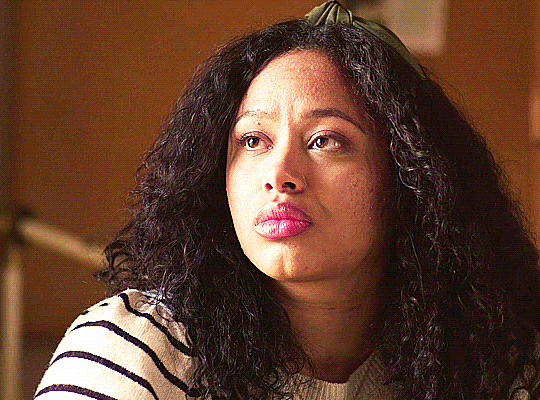
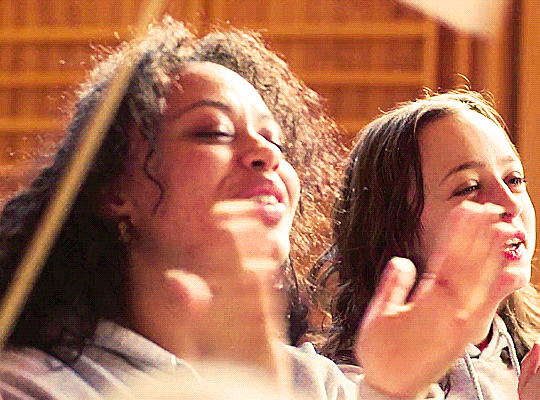
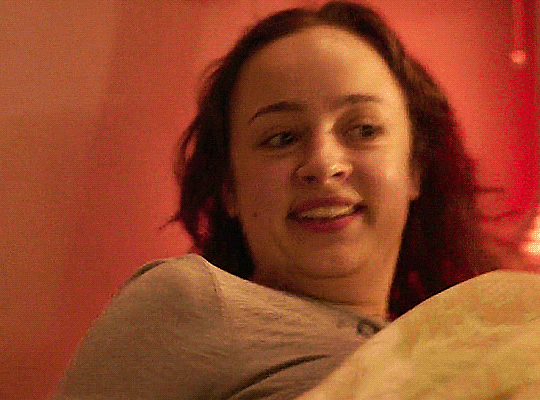

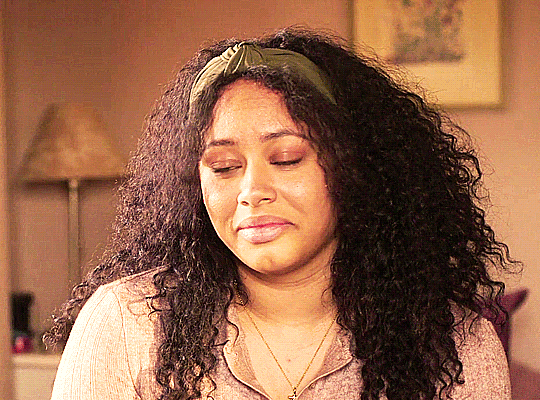
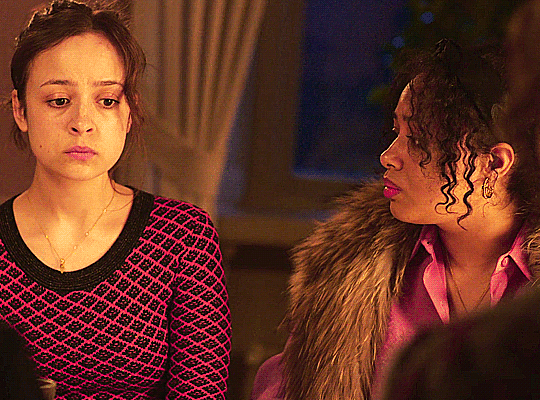
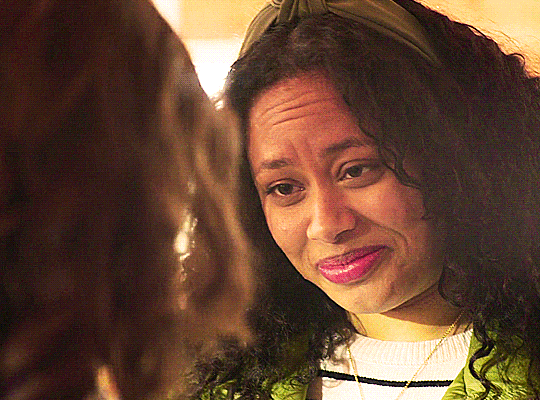
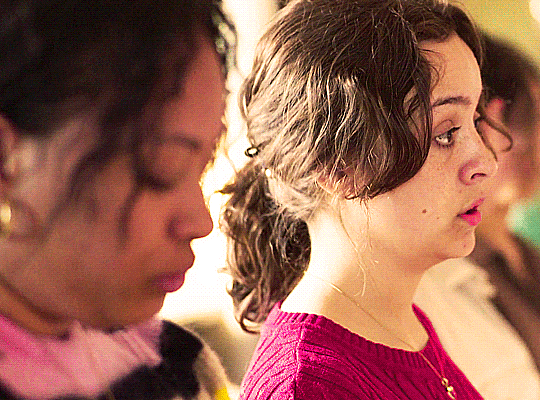
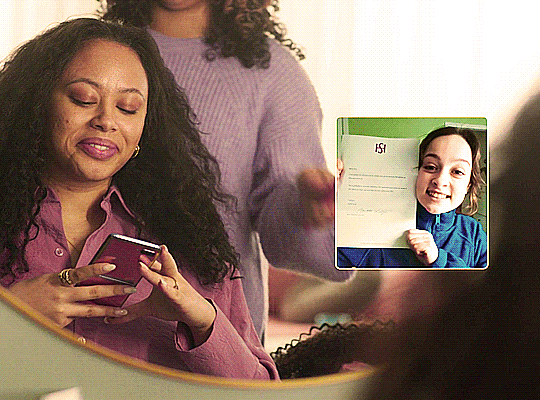
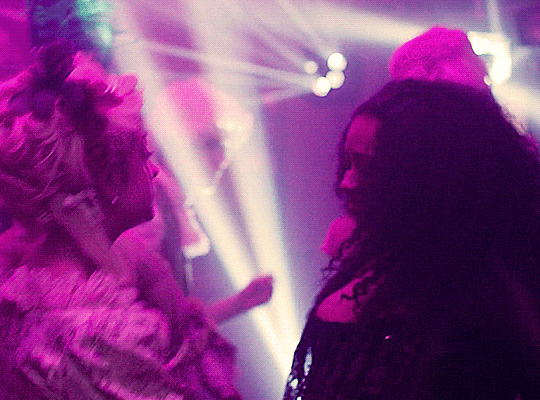
♥️Felice and Sara ♥️ in s02 of Young Royals
#queue#young royals#felice ehrencrona#sara eriksson#friendship young royals#female friendship#female friendship young royals#betrayal young royals#lies young royals#secrecy young royals#Sara and felice#chekhov’s shooting range#shooting range scene#young royals season 2#wilmon#august horn#young royals season 1#sargust#simon eriksson#young royals analysis#Sara eriksson analysis#felice Ehrencrona analysis#prince wilhelm
263 notes
·
View notes
Text
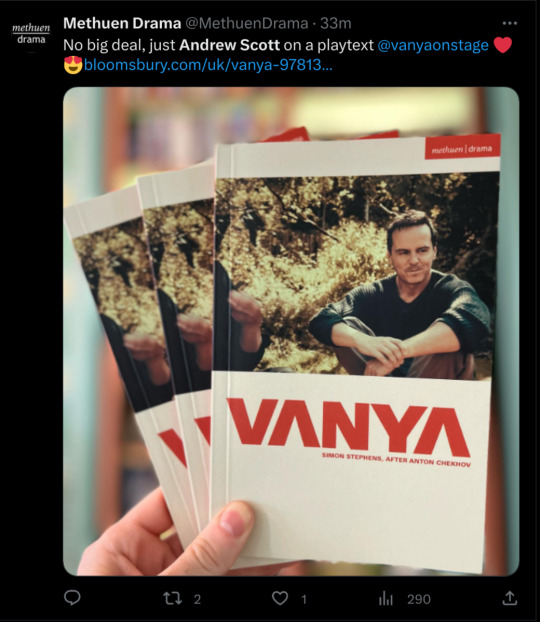
Anyone who's planning to see Vanya (after the October 9th release date) and wants to be familiar with the text, or saw it already and didn't get a copy in theater, but wants a souvenir, or just happen to be one of the many fans who won't get to see it (but totally aren't jealous and bitter about missing out) you can now pre-order a copy of the Vanya play text adapted by Simon Stephens, after Chekhov's Uncle Vanya , featuring Andrew Scott on the cover.
Available at Bloomsbury, Amazon and other book retailers on October 9th 2023, available for pre-order now.
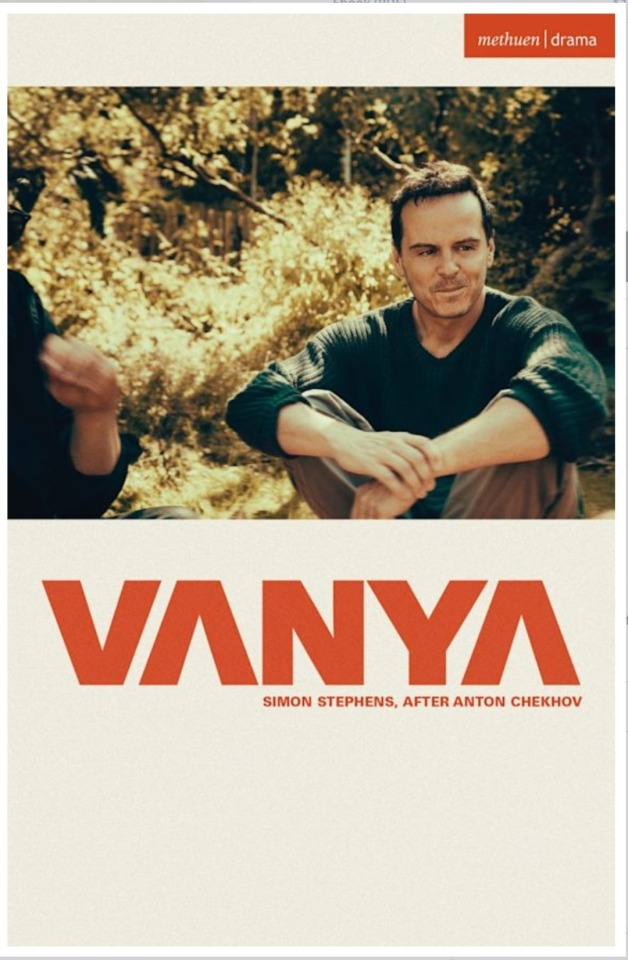
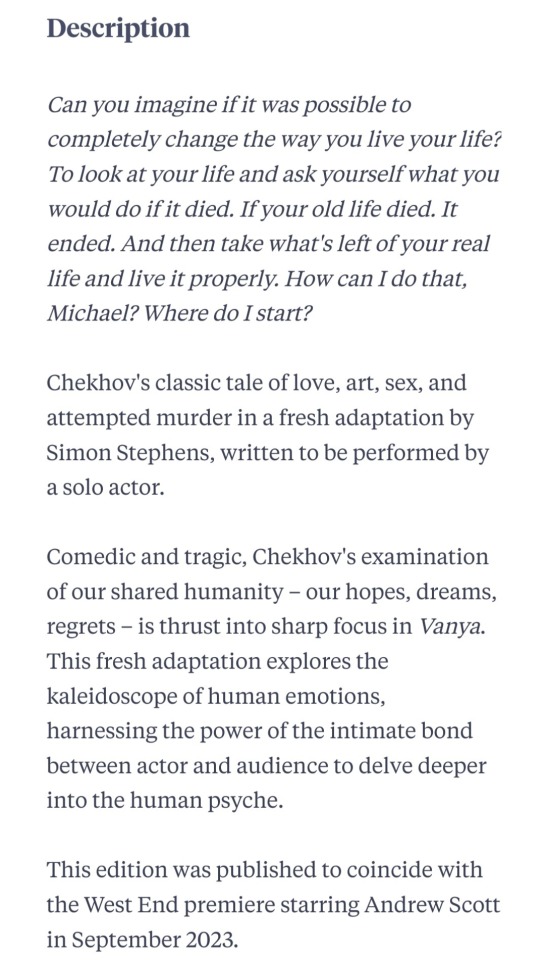
Bloomsbury preorder
Amazon preorder
25 notes
·
View notes